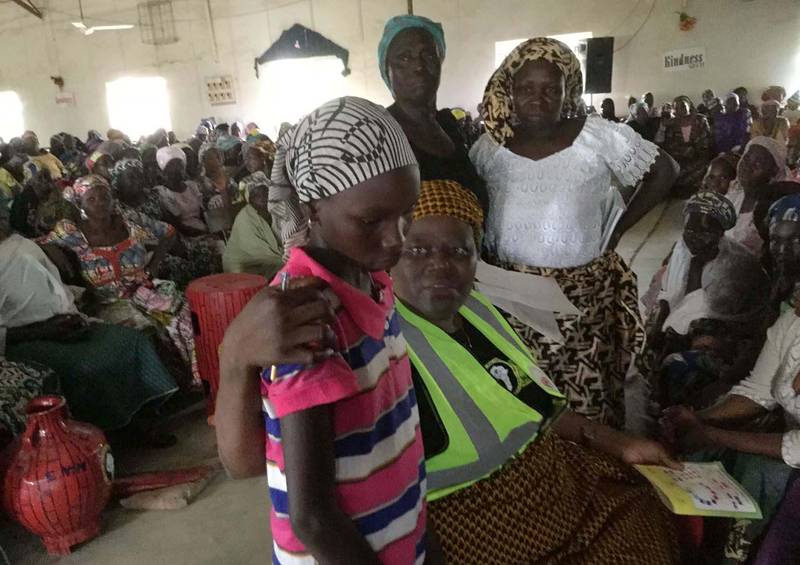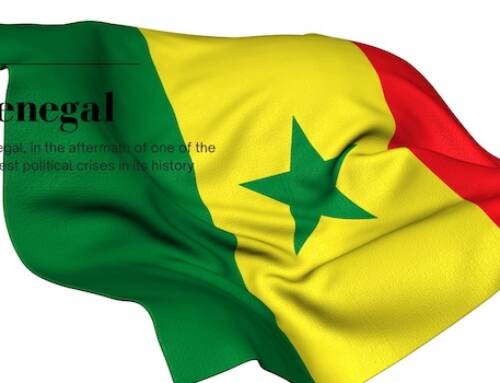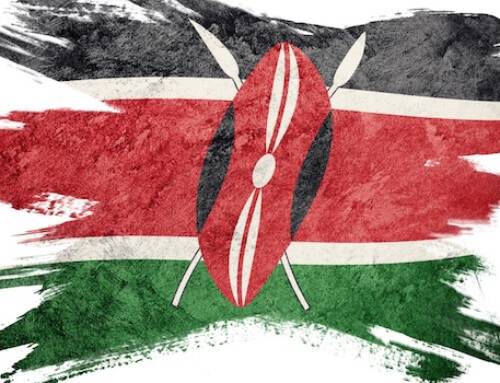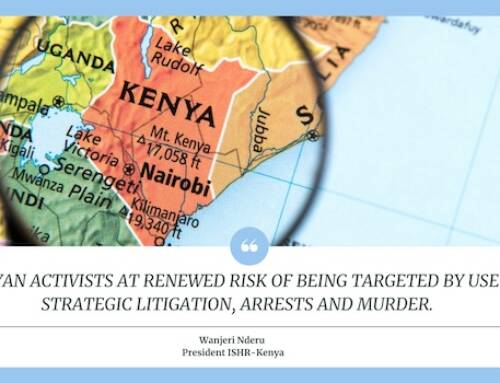MIDDLE EAST & NORTH AFRICA

Journey on the tracks of Boko Haram – Dr. Emmanuel Ogbunwezeh reports
From June 11th to July 9th 2018, Dr. Emmanuel Ogbunwezeh, Africa Advisor and member of the board of the ISHR, travelled to his home country Nigeria to get an idea of the situation there, especially of the effects of the terror campaign of Boko Haram, and to visit the school project which ISHR is carrying out in cooperation with the Somasker-Patres in the Enugu region.

Dr. Emmanuel Ogbunwezeh, Africa Advisor and member of the ISHR board, was back in his home country Nigeria from June 11th to July 9th 2018. © ISHR
Upon my arrival in Nigeria, I went to Jos, in the state of Plateau; the city is very centrally located, a traffic junction and a meeting place for trade, business and transportation. Even though Jos has experienced the terror of Boko Haram at first hand in recent years, the city is fairly safe, especially compared to cities in the northern states. Above all, however, Jos is a place through which the majority of refugees from the north move, and where many of them stay in refugee camps.
Terrorist militia destroys the livelihood of the people
During the first two weeks I spoke with about fifty people who had been victims of the Boko Haram attacks. Almost all of them lost, either through the attacks or through their flight, their entire possessions and livelihoods, and almost all of them lost loved ones. Most of the victims did not at all want their names mentioned, because even in Jos and the surrounding area they are not yet out of Boko Haram’s reach, and fear further violence by way of acts of revenge.

Many people in Nigeria are victims of the terrorist group Boko Haram. © ISHR
As an example, Mrs. Obiageli Nweke may be named, originally living in Nguru in the state of Yobe in northeast Nigeria. She lost her prospering tailor shop and all her property in an attack by Boko Haram; her husband and daughter are still missing. She fled with her remaining children to the federal capital Abuja, where she has relatives. Without any possessions and without work it is difficult for her to provide for herself and her children, even though as a trained seamstress she has a certain advantage here over those refugees who have not learned any trade.
Epidemic of widows and orphans
During my previous visit to Nigeria I had already learned that in many cases Boko Haram deliberately kills the men who usually earn the most money in the families, leaving behind women and children. In this way they create an “epidemic of widows and orphans”, as I called it at the time, who either become an economic burden to their surviving relatives, or somehow have to struggle along by themselves and thus create further misery in the districts inhabited by Christians.
The experience of talking to the victims of Boko Haram was bloodcurdling. Nobody who has spent his whole life in secure and politically stable conditions can imagine what these people are going through and what suffering and trauma Boko Haram has brought and continues to bring to northern Nigeria.
I also met the engineer Mark Lipdo, director of the Stefanus Foundation, which is engaged in helping the victims of religiously motivated violence in Nigeria; the Foundation runs a refugee camp on the site of a disused secondary school in Bukuro, a suburb of Jos, where, at the time of my visit, 205 families with a total of 566 people have found refuge. The Foundation is doing its best to use donations to ensure food and medical care for the camp’s residents, but many things are missing, partly because the government has so far completely ignored the camp.
In Michika, in Adamawa State in northeastern Nigeria, I met with Dr. Rebecca Dali of the Center for Caring Empowerment and Peace Initiative (CCEPI); Dr. Dali and her organization are at the forefront of endeavors to provide relief to the victims of Boko Haram deep in northeastern Nigeria – the stronghold of the terrorist movement. She lost her son in the conflict between Christians and Muslims in Jos and has since been dedicated to supporting relatives of the victims of such crimes.
Among other things, she performed aid deliveries to the parents of the abducted school girls of Chibok. The stories she tells about the activities of Boko Haram in the region and her experiences during her aid deliveries are absolutely shocking.

Boko Haram often deliberately kills men, as they usually earn the most money, leaving behind widows and orphans. © ISHR
Meeting these two great people, Mark Lipdo and Dr. Rebecca Dali, gives me new hope for the IDPs in Nigeria – hope that these people will find a new, safe home where they will soon be able to earn their own living and, as far as they are still able to, build a new life for themselves.
A clear contrast to this feeling of hope is the attitude of the government and the authorities, who largely abandoned the refugees and who, even after six years of armed conflict, have not excelled by a resolutely implemented and clearly result-generating strategy against Boko Haram. On the contrary, many governors in the Muslim north of Nigeria are looking away when Christians are being attacked, and some of them are accused of being in cahoots with the perpetrators. In addition, Christians in the north are discriminated against and oppressed in many ways by state governments, so that if nothing changes, sooner or later Christianity will be erased, at least in the north-east of Nigeria.
During my journey also, the terror of Boko Haram continued. In the four weeks I spent in Nigeria only, the terror campaign, according to official figures, claimed 556 lives.





